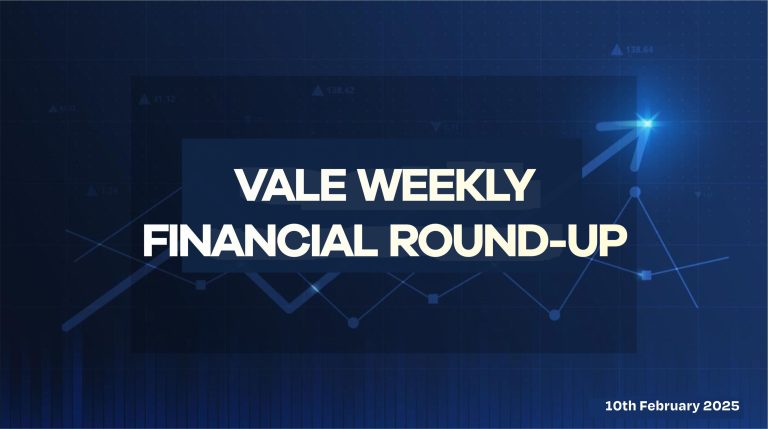Saving: Your Umbrella for Rainy Days
Saving sounds good in theory, but not always in practice. The truth is, saving isn’t easy. Most times, it feels like a luxury, especially when you’re juggling transport fare, data, food, bills, black tax, and your own soft life dreams. You tell yourself, “I’ll start saving next month when things are more stable.” Then the next month comes with its own troubles, and the pattern continues.
Saving requires discipline. It means saying no when you could say yes, holding back when spending would feel better in the moment. All this effort is for a future that hasn’t happened yet, and that’s what makes saving hard. It offers no immediate reward.
Then the rain comes. It could be an unexpected medical bill. A crashed phone you need for work. A delayed salary. That’s when you begin to see the value of your sacrifice. That small amount you put aside every week or month, even when it was inconvenient, becomes your saving grace. You don’t have to beg. You don’t have to borrow. You don’t have to sell your valuables just to handle an emergency. You simply reach into your savings.
Saving for rainy days often feels pointless, until the rain actually starts falling. Then it becomes your umbrella, your shelter, your peace. It may not fix everything, but it gives you space to breathe. It gives you a sense of control. Most importantly, it gives you the strength to handle life without falling apart.
Rainy days don’t show up only once. They don’t spread themselves out nicely. Sometimes, it rains back-to-back. In those seasons, what helps you isn’t your income, it’s your discipline. It’s the consistent little amounts you managed to put aside, even when it felt like you had nothing to spare.
Over time, you begin to realize that saving isn’t punishment, it’s protection. It’s a way of refusing to leave your entire life to chance. It’s preparation for what hasn’t happened yet. You hope it never comes, but if it does, you won’t be helpless. You already did the work.
Saving for rainy days isn’t always about putting money aside from your income. It could mean buying shares. It could mean investing in a business that brings returns. That’s still saving, just in another form. It’s still something you can fall back on when life happens. Another kind of backup. Another kind of safety net.
It may not always feel like you’re making huge progress. But one day, it will save you. That’s when you’ll know the discipline was worth it.
You may not get applauded for it. No one may notice the effort. Yet that consistent discipline is a superpower you have. In a world where everyone is rushing to keep up, choosing to plan ahead is one of the strongest things you can do for yourself.
Don’t wait for the perfect time to start saving. Life will always have demands. The goal isn’t to wait until you have a lot, it’s to start with what you have now.
Start small. Start unsure. Start afraid. Just start.
When the rain comes, you’ll be glad you did
NOW TO THE NEWS
Vale Finance Kicks Off Back to School Challenge with Exciting Rewards Up for Grabs
Vale Finance has launched its Back to School Challenge, encouraging parents and guardians to start saving ahead of the September school term while earning extra rewards while saving.
The goal-based challenge allows users to set savings targets specifically for school-related expenses such as tuition, uniforms, books, and more. Participants stand a chance to earn up to 13% interest per annum on their savings, receive an extra 5% bonus for meeting their targets, and win school items worth ₦250,000(Terms and conditions apply).
This initiative is part of Vale’s ongoing commitment to help parents and guardians plan better, save smarter, and avoid last minute financial pressure during the resumption season.
The Back to School Challenge is open to both new and existing users on the Vale app.
Naira Approaches ₦1,500/$ as IMF Backs CBN’s Tight Policy
The Nigerian naira is now less than ₦30 away from breaching the critical ₦1,500/$ resistance level in the official foreign exchange market. As of Friday, the currency traded at ₦1,528/$, representing a slight drop from Thursday’s closing rate.
The recent movement comes amid renewed foreign currency transactions using naira debit cards by Nigerian banks, a development that, alongside broader macroeconomic reforms, has helped improve market confidence despite ongoing volatility.
The naira’s exchange rate trajectory also follows strong backing from the International Monetary Fund (IMF), which described the Central Bank of Nigeria’s (CBN) tight monetary policy as “appropriate and necessary” to anchor inflation expectations and reinforce macroeconomic stability.
In its latest Article IV Consultation Report for 2025, the IMF welcomed the CBN’s halt of deficit monetization, previously a major driver of inflation and commended efforts to improve transparency and governance in the monetary system.
Debt Servicing Costs Hit 4.1% of GDP — AfDB
According to the African Development Bank’s latest Country Focus Report, Nigeria spent 4.1% of its GDP on debt servicing in 2024, up from 3.7% in 2023. This rise was attributed to higher interest payments on government securities and new borrowings to cover the budget deficit. Public debt increased sharply from 41.5% to 52.3% of GDP, driven by greater financing needs, a weaker naira, and new debt totaling $3.3 billion—$2.2 billion from Eurobonds and the rest from multilateral lenders. The debt servicing-to-revenue ratio also rose from 76.8% to 77.5%, indicating that over three-quarters of government revenue was spent on debt repayment.
Despite some fiscal reforms such as subsidy removal and exchange rate unification, Nigeria continues to face significant public finance pressure. The fiscal deficit declined slightly from 4.0% to 3.9% of GDP, but government spending remained low at 15.5% of GDP, far below the sub-Saharan African average of 21.4%. Allocations to education and health stood at 7.9% and 5.3%, respectively, falling short of global benchmarks and hindering progress in human capital development.
The report highlighted weak domestic revenue mobilization, with a tax-to-GDP ratio of just 5.2%, constrained by a large informal sector accounting for 68% of output and over 90% of employment. While oil-related revenues rose due to full fuel market deregulation, Nigeria still faces a $31.5 billion shortfall out of an annual financing need of $47.6 billion. Economic growth stood at 3.4% in 2024 but it is projected to slow to 3.2% in 2025 and 3.1% in 2026 amid global uncertainties. The AfDB recommended continued reforms, improved tax systems, streamlined spending, and more private capital investment to stabilize public finances and meet development goals.
IMF Commends Nigeria’s Financial Reforms, Projects 3.4% GDP Growth
The International Monetary Fund (IMF) has commended Nigeria’s progress in reforming its financial sector, following its latest Article IV report.
A key focus was the Central Bank of Nigeria’s (CBN) overhaul of the foreign exchange (FX) market, including the adoption of a “willing-buyer, willing-seller” system via the B-Match platform. These reforms improved dollar liquidity, enhanced price discovery, and helped restore investor confidence. As a result, FX inflows surged to $6.9 billion in Q1 2025, and external reserves climbed to $40.9 billion, covering over eight months of imports.
The IMF also noted a major achievement in narrowing the FX premium—between official and parallel market rates—from over 60% to below 3%, contributing to naira stability. Nigeria’s return to the Eurobond market after four years was cited as evidence of renewed investor confidence.
On the fiscal side, the IMF advised a neutral stance focused on growth-enhancing investments, cash transfers to vulnerable populations, and broader tax reform to improve revenue mobilization. The Fund also supported the CBN’s ongoing bank recapitalization plan ahead of Nigeria’s projected $1 trillion economy, and acknowledged efforts to promote financial inclusion through digital channels and initiatives like the Women’s Financial Inclusion Initiative (Wi-Fi).
However, the IMF warned of persistent challenges including high inflation, infrastructure gaps, insecurity, and red tape. It recognized progress in strengthening anti-money laundering and counter-terrorism financing frameworks but urged Nigeria to fully address remaining deficiencies to exit the Financial Action Task Force (FATF) grey list.
The Article IV report also projected a 3.4% GDP growth rate for 2025, driven by oil output, a new refinery, and the services sector, with medium-term growth expected to stay around 3.5%, supported by continued reforms.


